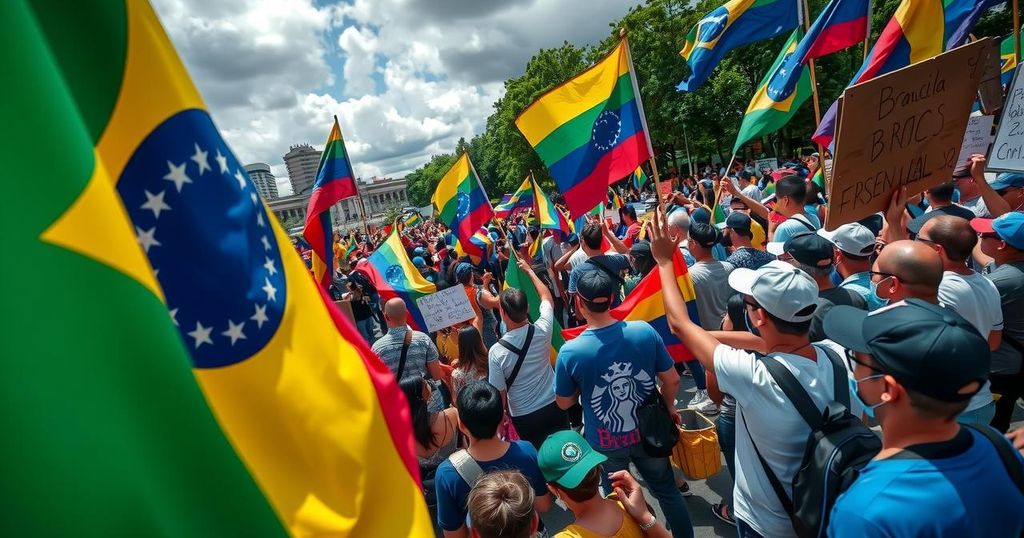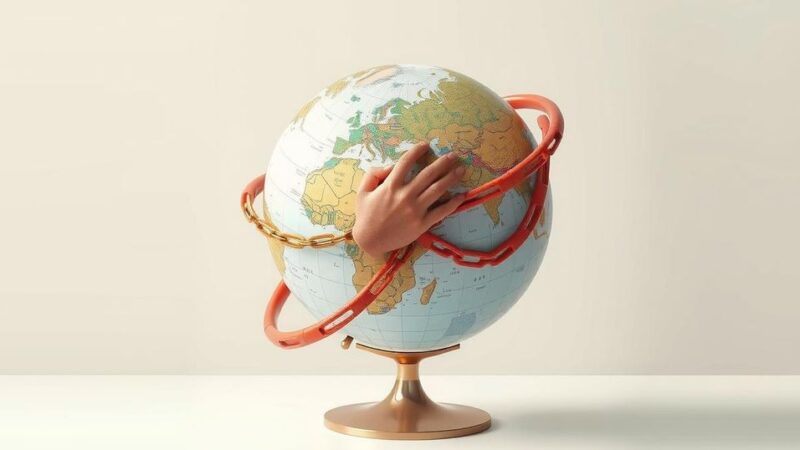Venezuela has condemned Brazil’s veto of its Brics membership application, calling it an ‘immoral aggression’ and a reflection of worsening relations post-controversial elections. Brazilian President Lula da Silva initially showed support for Maduro but later questioned the election results. The situation highlights tensions within the Brics framework as it expands its membership while dealing with internal contradictions.
Venezuela has expressed outrage over Brazil’s refusal to support its entry into the Brics group of emerging economies. The foreign ministry of Venezuela labelled the veto as an ‘immoral aggression,’ stemming from heightened tensions following the controversial presidential election in Venezuela, where President Nicolás Maduro claimed victory amid allegations that opposition candidate Edmundo González secured a substantial win. Since the election, relations between the two nations have soured. Initially, Brazilian President Luiz Inácio Lula da Silva voiced support for Maduro; however, he later indicated that he would not accept the electoral outcome until a detailed vote breakdown was provided. Numerous foreign nations have echoed doubts regarding the legitimacy of the election results, though none have officially acknowledged González as president. In a statement, Venezuela’s foreign ministry denounced Brazil’s decision to uphold the diplomatic veto established by former President Jair Bolsonaro, suggesting it perpetuates a culture of exclusion and hostility fostered by Western powers. “The Venezuelan people feel indignation and shame at this inexplicable and immoral aggression,” the statement noted. Venezuela had actively sought entry into the Brics and positioned itself as a member of the ‘Brics family,’ with Maduro attending the summit in Kazan to advocate for its inclusion. Russian President Vladimir Putin, while supportive of Venezuela’s ambitions, emphasized the necessity of consensus among existing members for such membership, clarifying that he discussed the matter with President Lula prior to the summit. While the Brics initially comprised Brazil, Russia, India, China, and South Africa, it expanded its membership recently to include countries such as Egypt, Ethiopia, Iran, and the United Arab Emirates. Lula has consistently championed the Brics as a vehicle for reforming global governance and amplifying the voices of developing nations. However, critics argue that the Brics group faces internal contradictions, particularly in light of Russia’s ongoing conflict in Ukraine and the varying disputes among China and India. The Kazan summit was anticipated as an opportunity for President Putin to showcase the resilience of Russia amidst international isolation, yet it simultaneously underscored persistent divisions, particularly in light of the deteriorating relations between Brasilia and Caracas.
The Brics group, originally formed by Brazil, Russia, India, China, and South Africa, aims to unite emerging economies and provide them with a platform for greater influence in global governance. In response to the geopolitical landscape, a recent decision was made to expand the group’s membership, inviting countries such as Egypt, Ethiopia, Iran, and the United Arab Emirates. The relationship between Brazil and Venezuela has been strained due to the contested electoral processes in Venezuela. As Venezuela sought to bolster its international standing through Brics membership, the opposing stance taken by Brazil has led to heightened diplomatic tensions, framing a broader narrative about emerging economies and the complexities of international alliances.
In summary, Venezuela’s frustration over Brazil’s refusal to accept its application for Brics membership highlights deep-seated political tensions rooted in recent electoral disputes. The situation reflects the broader struggle for influence among emerging economies, as leaders like President Lula advocate for reform in global governance while navigating internal contradictions within the Brics group. The aftermath of the Kazan summit symbolizes not only an opportunity lost for Venezuela but also a significant diplomatic impasse between two leftist administrations.
Original Source: www.bbc.com






